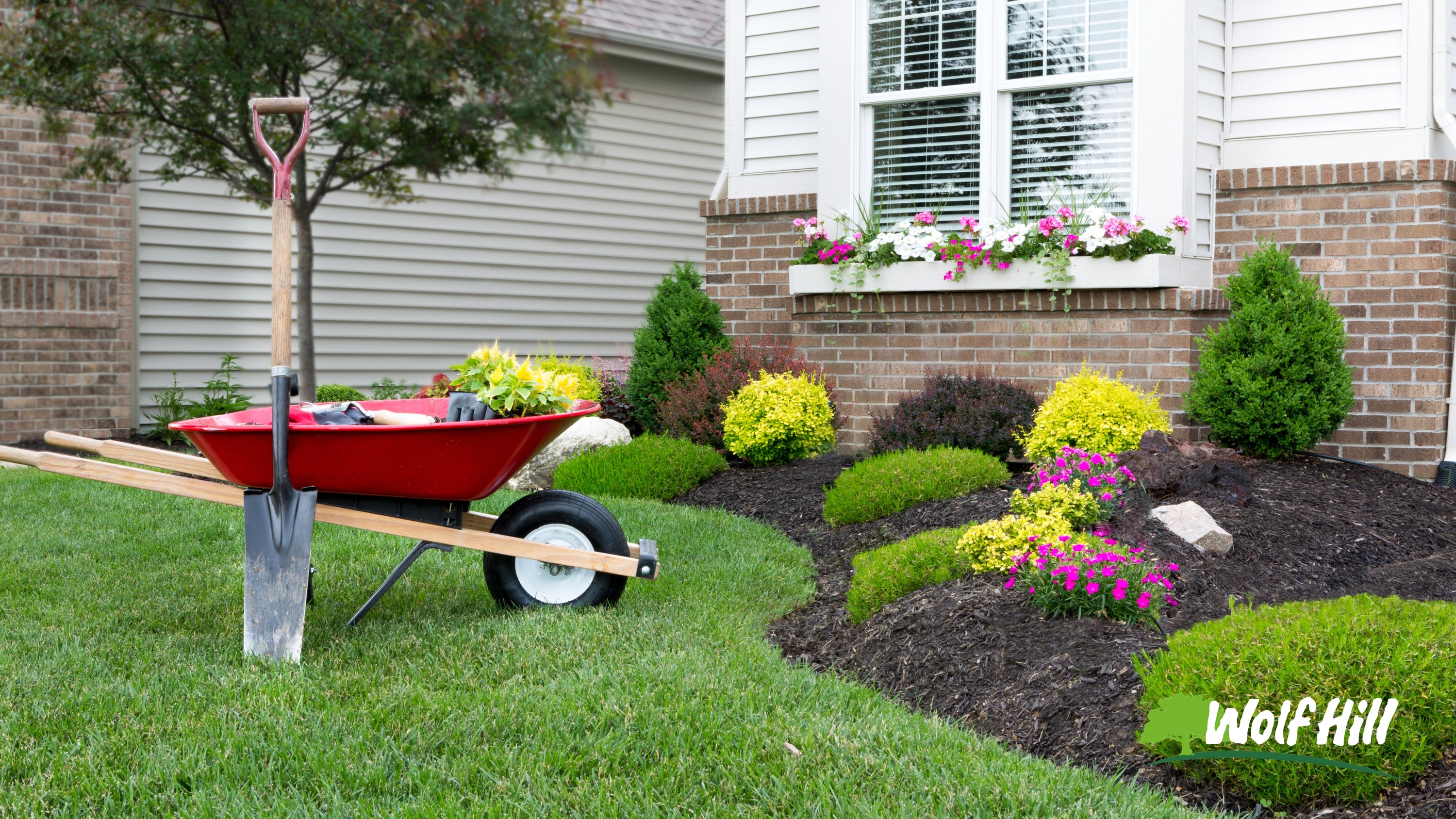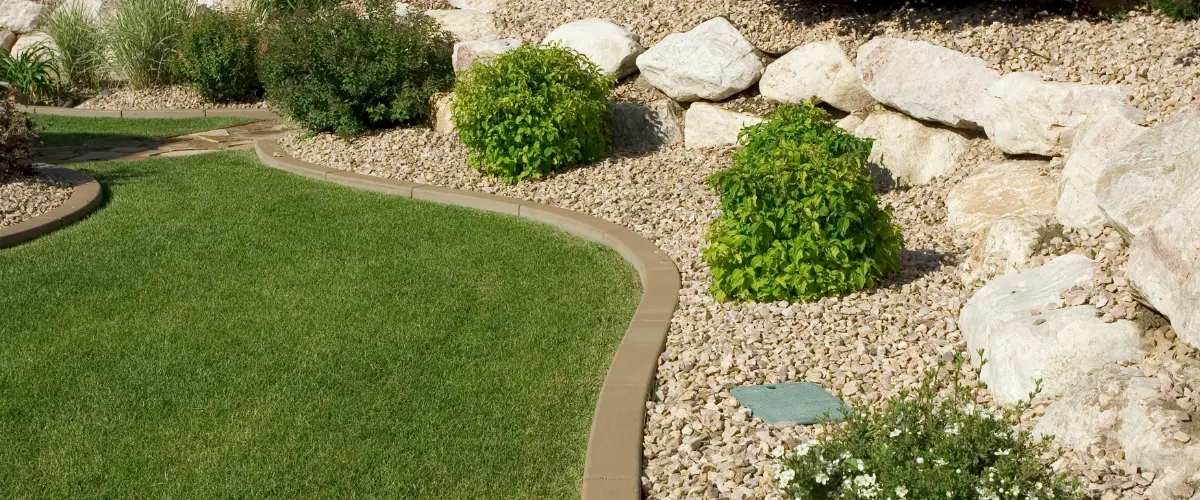Unknown Facts About Landscaping
Unknown Facts About Landscaping
Blog Article
Landscape Design: Transform Your Outdoor Area With Professional Garden Style And Yard Enhancement Services
Style Principles and Components in Landscaping
Have you ever roamed through a garden that felt like a secret poem whispered by nature itself? That sense of harmony and balance doesn't occur by mishap. It's the careful orchestration of style principles and elements that transform a patch of earth into a living work of art. When you consider landscaping, what comes to mind initially? Color? Texture? Space? These parts are the fibers woven into the fabric of every effective landscape.
Balance and Unity: The Backbone of Landscape Style

Balance can be symmetrical, where each side mirrors the other like a perfectly folded origami, or asymmetrical, where contrasts produce vibrant tension-- think of a lone oak standing tall versus a cluster of wildflowers. Unity ties everything together, assisting the eye smoothly from one function to another. Ever seen how a properly designed garden never feels disorderly but rather invites calm exploration?
Secret Elements to Think About
- Line: It directs movement-- curved paths invite leisurely walks, while straight lines suggest formality.
- Texture: Rough bark juxtaposed with soft turf includes sensory depth.
- Color: Beyond visual appeals, color affects mood-- dynamic reds energize, while cool blues soothe.
- Scale and Percentage: A towering sculpture overshadows fragile shrubs, so size relationships need to balance.
- Centerpieces: Whether a water function or a striking tree, focal points anchor the space aesthetically.
Using These Concepts: A Personal Tale
As soon as, revamping a backyard, I faced a stubborn issue: how to develop a sense of enclosure without closing off the view. Instead of putting up a fence, I planted a staggered row of evergreens with differing heights-- a subtle play on percentage and scale. The result was a natural screen that seemed like a comfortable nook instead of a barrier. Isn't it remarkable how thoughtful application of design elements can solve practical difficulties while enhancing charm?
| Concept | Result | Example |
|---|---|---|
| Balance | Develops consistency | Balanced flower beds |
| Unity | Visual cohesion | Consistent plant theme |
| Focal Point | Draws attention | Water water fountain |
| Scale | Proportional aspects | Big trees with little shrubs |
| Texture | Varied sensory feel | Mix of rough stones and smooth leaves |
Exploring Diverse Landscaping Styles
Why choose a cookie-cutter garden when nature provides a combination of designs as varied as the seasons? From the serene zen gardens of Japan to the wild, untamed look of naturalistic landscapes, each design shapes not just the soil, however the soul of your outdoor space. Do you long for order or chaos in your greenery?
Popular Landscaping Styles and Their Essence
- Formal Gardens: Symmetry and precision rule. Think of strolling through a maze of completely clipped hedges where every corner whispers meticulous care.
- Cottage Gardens: Overflowing with color and appeal, this design welcomes spontaneity, much like an artist's canvas splashed with vibrant blossoms.
- Desert Landscaping: Welcome drought-resistant plants and stones; a nod to strength in arid climates, where every element tells a story of survival.
- Modern Minimalist: Clean lines, basic shapes, and restrained plant schemes produce a tranquil, almost meditative space-- less really is more here.
Professional Tips for Choosing Your Design

- Examine your soil and climate-- does the design flourish naturally, or will you combat against environment daily?
- Match the landscaping style to your lifestyle; do you desire a low-maintenance retreat or a hands-on job?
- Consider the architectural design of your home-- does your garden echo or contrast with your home?
- Use native plants where possible; they provide ecological balance and reduce the need for extreme watering or fertilizing.
Ever observed how some landscaping creates narrate while others simply embellish? The secret depend on thoughtful layering-- mixing textures, heights, and colors to craft a living story. A good friend as soon as regreted her garden's absence of personality up until she presented a winding course lined with fragrant herbs. All of a sudden, every check out became a sensory journey, not simply a visual experience.
Necessary Tools and Equipment for Mastering Landscaping
Ever tried wrestling with a stubborn root without a pruning saw - Landscaper.?. !? It resembles attempting to paint a work of art with a broom. The right tools do not simply make the task easier-- they change your whole method to landscaping
Consider the humble spade. It's more than simply a hole-digger; a sharp, well-balanced spade can shape the earth with skill, whether you're edging a flower bed or transplanting a fragile shrub. However beware: dull edges turn effort into disappointment.
Must-Have Hand Tools
- Hand trowels for precise planting
- Ergonomic loppers to prune without strain
- Garden forks that aerate soil, boosting root development
- Weeders that sneak under pesky invaders without disturbing neighbors
Power Equipment That deserves the Financial investment
When terrain gets tough, a rototiller breathes life into compacted ground, turning hardpan into an inviting bed for seeds. However even with modern makers, understanding soil texture and wetness content remains important-- straining the earth can result in compaction, the quiet enemy of healthy landscaping.
| Equipment | Finest Use | Expert Idea |
|---|---|---|
| Hedge Trimmers | Shaping bushes and hedges | Trim throughout dry weather to prevent fungal infections |
| Wheelbarrow | Transporting soil, mulch, and plants | Balance loads uniformly to reduce back stress |
| Leaf Blower | Clearing particles rapidly | Use morning or late night to reduce disturbance |
Have you ever saw how the tiniest tool can pivot your landscaping experience? A website pair of quality gloves guards your hands but also offers unexpected grip, making each job smoother (Landscaping Near Me). The secret depend on matching the best equipment with method-- sharp tools wielded with care outperform brute force any day
Environmental Impact and Sustainability in Landscaping
Have you ever paused to consider how much water your garden guzzles during a dry spell? Water preservation isn't just a buzzword-- it's a lifeline for sustainable landscaping. When plants are selected without regard to local environment, the thirst they demand can drain resources faster than one might imagine. I remember a job where native drought-resistant plants changed a parched yard into a vibrant oasis, slashing water use by over 40%. Why choose thirsty exotics when nature's own palette grows with less?
Soil Health: The Unsung Hero

Soil isn't just dirt; it's a living tapestry bristling with microorganisms that govern plant health and carbon sequestration. Overlooking soil destruction resembles constructing a house on sand. Composting natural waste and incorporating cover crops can revitalize worn out earth, improving nutrient cycling and water retention. Ever discovered how mulching can at the same time reduce weeds and lock wetness in? That's the kind of double-duty technique that elevates sustainable landscapes.
Professional Tips to Enhance Eco-Friendly Landscaping
- Choose native or adaptive plants to decrease chemical inputs and watering needs.
- Incorporate rain gardens or bioswales to handle stormwater runoff effectively.
- Limit hardscaping surfaces to avoid heat islands and promote groundwater recharge.
- Use permeable products for pathways and patios to motivate natural water seepage.
- Implement layered planting strategies to imitate natural ecosystems and increase biodiversity.
Balancing Visual Appeals with Ecology
Can a garden be both a feast for the eyes and a sanctuary for wildlife? Absolutely. I have actually witnessed landscapes where pollinator-friendly plants draw in bees and butterflies, turning yards into buzzing environments. This isn't simply a feel-good gesture; it aids in ecosystem restoration, helping native species rebound. The secret depend on thoughtful design that accepts imperfection-- leaves delegated decompose, wildflowers allowed to flower untamed.
| Practice | Environmental Benefit | Application Pointer |
|---|---|---|
| Rainwater Harvesting | Minimizes potable water use | Set up barrels linked to downspouts |
| Native Plant Choice | Supports regional fauna and minimizes watering | Seek advice from regional plant guides |
| Organic Mulching | Enhances soil moisture and fertility | Use shredded leaves or bark |